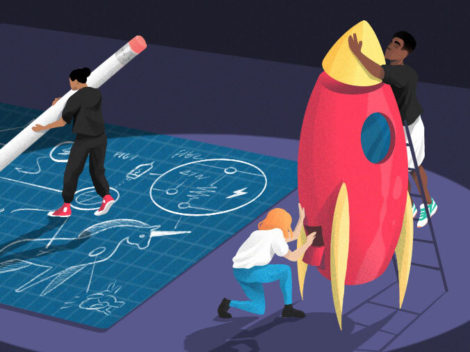Years ago, Steve Reilly had to take his daughter to the emergency room, something no parent ever wants to have to do. Thankfully, she ended up being all right but only after a misdiagnosis and “a scary few weeks.”
Subscribe to the Crunchbase Daily
The experience prompted Reilly to consider how it all could have been avoided. And so the idea for Mednition was born.
Today, Burlingame, Calif.-based Mednition, which has developed a machine learning-powered decision support solution for emergency nurses, announced that it has raised $10 million in a Series A round of funding.
Healthcare private equity firm Concord Health Partners led the round via its American Hospital Association Innovation Fund.
Existing investor Wildcat Capital Management, the Fort Worth, Texas-based family office of David Bonderman, a co-founding partner of TPG Capital, also participated in this new round, along with existing seed round investors.
The five-year-old company’s goal is to provide “listening technology” to help emergency room nurses make better decisions in real time. After spending “a lot of time” with dozens of clinicians to determine how to best develop the technology, and more importantly, how to make it work in a real hospitals, Steve and his brother Christian put together a prototype of its solution called KATE (named after Steve’s daughter).
“All data that a clinician puts into an EHR (electronic health record), we get a second later in our cloud infrastructure,” Steve told Crunchbase News. “We run it through our machine learning pipeline and make a prediction. If our prediction agrees with the clinician’s decision, we stay out of the way. But if an anomaly is discovered, Kate provides feedback via note to wherever they are, whether they’re using a mobile device or rolling workstation.”
In December 2018, Mednition deployed its solution at Adventist Health White Memorial (AHWM) in Los Angeles after having partnered together for about two years to gather data. So far, KATE has monitored about 45,000 patients, with about 70 nurses using the solution and treating about 160 patients a day, according to Reilly. It has so far reduced the average length of stay in the emergency department for those admitted to the ICU with sepsis, a potentially life-threatening condition caused by the body’s response to an infection, “by over two hours,” he said. It’s also identified about 500 patients that needed to be immediately taken to a bed as opposed to going to a waiting room.
“There’s a lot of decisions to be made in an emergency room, and it can be tough for a nurse to make calls in a matter of seconds,” Christian Reilly said. “Kate, for example, can do things like point out when a diabetic patient with hypoglycemia and low blood pressure needs to be seen immediately. Kate can help nurses understand they may have missed something.”
As most machine learning models work, Kate will get smarter over time as more data is entered into the system.
“We believe we have the right mix of emergency department clinicians, data science, and enterprise software developer,” Christian Reilly said. “Plus, our technology can integrate seamlessly and naturally into nurses’ existing processes.”
Mednition plans to use its new capital to expand its care and orientation teams, help the company go to market, and to continue to grow its platform as it has “already had requests for additional products,” Steve Reilly said.
James Olsen, founder & managing partner of Concord Health Partners, is impressed with Mednition’s “robust and differentiated capability that helps clinicians make better decisions at the point of care, driving improved outcomes and more efficient resource management.”
It also described the platform as both “customer-friendly and scalable.” The firm plans to work with the American Hospital Association, as well as its strategic health system partners, to accelerate the adoption of Mednition’s technology.

Stay up to date with recent funding rounds, acquisitions, and more with the Crunchbase Daily.




![Illustration of a guy watering plants with a blocked hose - Global [Dom Guzman]](https://news.crunchbase.com/wp-content/uploads/quarterly-global-3-300x168.jpg)
67.1K Followers